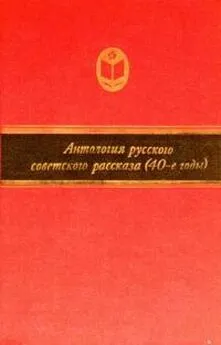Юрий Слёзкин - Эра Меркурия
- Название:Эра Меркурия
- Автор:
- Жанр:
- Издательство:Литагент Corpus
- Год:2019
- Город:Москва
- ISBN:978-5-17-109198-9
- Рейтинг:
- Избранное:Добавить в избранное
-
Отзывы:
-
Ваша оценка:
Юрий Слёзкин - Эра Меркурия краткое содержание
Эра Меркурия - читать онлайн бесплатно ознакомительный отрывок
Интервал:
Закладка:
61
См. главу 1, ссылки 50 и 52, в особенности Hamilton, The Organizational Foundations .
62
Nelson, The Idea of Usury.
63
Там же, xvi – xvii.
64
Цитата взята из van den Berghe, The Ethnic Phenomenon, 140. См. также: Bonacich, А Theory of Middleman Minorities , 589.
65
Heinrich Heine. The Prose Writings of Heinrich Heine, ed. Havelock Ellis. New York: Arno Press, 1973, 313.
66
Nelson, The Idea of Usury, xvi.
67
Hans Aarslef. From Locke to Saussure: Essays on the Study of Language and Intellectual History. Minneapolis: University of Minnesota Press, 1982, 281–282; Maurice Olender. The Languages of Paradise: Race, Religion, and Philology in the Nineteenth Century. Cambridge: Harvard University Press, 1992, p. 1–5; R. H. Robins. The History of Language Classification , in Thomas A. Sebeok, ed. Current Trends in Linguistics, vol. 2. The Hague: Mouton, 1973, 7–11; Slezkine, Naturalists versus Nations , 84 and passim.
68
William Blake. William Blake’s Writings, ed. G. E. Bentley, Jr. Oxford: Clarendon Press, 1978, 1: 318.
69
See Harold Bloom. Shakespeare: The Invention of the Human. New York: Riverhead, 1998.
70
Sutherland, The Body ; John M. Efron. Medicine and the German Jews: A History. New Haven: Yale University Press, 2001.
71
Cf. Zygmunt Bauman. Modernity and the Holocaust. Ithaca: Cornell University Press, 1989.
72
Цитата о “третьем сословии” взята из: Sigmund Mayer. Ein jüdischer Kaufmann 1831–1911 : Lebenserinnerungen. Leipzig, 1911, которая цитируется в: Steven Beller. Vienna and the Jews 1867–1938 : A Cultural History. Cambridge: Cambridge University Press, 1989, 110. См. также с. 84–121.
73
David S. Landes. The Unbound Prometheus: Technological Change and Industrial Development in Western Europe from 1750 to the Present. Cambridge: Cambridge University Press, 1969: Ландес говорит в первую очередь о становлении современной технологии, но его метафора приложима к современной эпохе в целом; Calvin Goldscheider and Alan S. Zuckerman. The Transformation of the Jews. Chicago: University of Chicago Press, 1984, 89; Arthur Ruppin. The Jews in the Modern World. London: Macmillan, 1934, 144–147; Ezra Mendelsohn. The Jews of East Central Europe between the World Wars. Bloomington: Indiana University Press, 1987, 28; Joseph Jacobs. Jewish Contributions to Civilization: An Estimate. Philadelphia: Jewish Publication Society in America, 1919, 239; Saul Friedlander. Nazi Germany and the Jews: The Years of Persecution, 1933–1939. New York: Harper Collins, 1997, 77; Donald L. Niewyk. The Jews in Weimar Germany. Baton Rouge: Louisiana State University Press, 1980, 15; William O. Mc-Cagg. Jewish Wealth in Vienna, 1670–1918, in Michael K. Silber, ed. Jews in the Hungarian Economy 1760–1945 : Studies Dedicated to Moshe Carmilly-Weinberger on His Eightieth Birthday. Jerusalem: Magnes Press, 1992, 75, 79–89; Siegmund Kaznelson, ed. Juden im deutschen Kulturbereich. Berlin: Jüdischer Vcrlag, 1959, 720–759; Niall Ferguson. The World’s Banker: The History of the House of Rothschild. London: Weidenfeld & Nicolson, 1998, 7 and passim; Robert S. Wistrich. Socialism and the Jews: The Dilemmas of Assimilation in Germany and Austria-Hungary. East Brunswick, N. J.: Associated University Presses, 1982, 61, 180–181.
74
McCagg, Jewish Wealth in Vienna , 74–91, William O. McCagg. Jewish Nobles and Geniuses in Modern Hungary. Boulder, Colo.: East European Quarterly, 1972, 16, 30, 42–43; Andrew C. Janos. The Politics of Backwardness in Hungary, 1825–1945. Princeton: Princeton University Press, 1982, 114, 225; Friedlander, Nazi Germany and the Jews, 80; Ruppin, The Jews in the Modern World, 207–211; Kaznelson, Juden im deutschen Kulturbereich , 760–797; Mendelsohn, The Jews of East Central Europe, 244–245; Jacobs, Jewish Contributions to Civilization, 237–246; Cecil Roth. The Jewish Contribution to Civilization. New York: Harper and Brothers, 1940, 278–283; György Lengyel. Hungarian Banking and Business Leaders between the Wars: Education, Ethnicity and Career Patterns , in Silber, Jews in the Hungarian Economy, 230; Nathaniel Katzburg. Hungary and the Jews: Policy and Legislation 1920–1943. Ramat Gan: Bar-llan University Press, 1981, 30; W. D. Rubinstein. The Left, the Right, and the Jews. London: Croom Helm, 1992, 13, 27; данные W. D. Rubinstein’a о еврейском участии в различных экономических элитах см.: в Niall Ferguson. The Cash Nexus: Money and Power in the Modern World, 1700–2000. London: Allen Lane, 2001, 378; Wistrich, Socialism and the Jews, 59–61, 180–181; о Ротшильдах см. в: Ferguson, The World’s Banker , 3, 1034–1036.
75
Ruppin, The Jews in the Modern World, 151–153. Цитата из Гейне взята из: Jacobs, Jewish Contributions, 239–240; Janos, The Politics of Backwardness, Ch. 3; Ferguson, The World’s Banker, 7–11, 505–507 and passim, в особенности 147 и 173; Fritz Stern. Gold and Iron: Bismarck, Bleichroder, and the Building of the German Empire. New York: Alfred A. Knopf, 1977; Александр Герцен. Былое и думы. М.: Художественная литература, 1969, 1: 643–651.
76
Beller, Vienna and the Jews, 52–67. Efron, Medicine and the German Jews, 236–237. Cf. Lengyel, Hungarian Banking and Business Leaders . Среди еврейских отцов-предпринимателей Венгрии доля самостоятельно добившихся успеха людей, не имевших формального светского образования, была гораздо выше, чем среди неевреев. О непропорционально высоком представительстве евреев среди учащихся гимназий см.: Goldscheider and Zuckеrman, The Transformation of the Jews, 86; и Victor Karady, Les juifs de Hongrie sous les lois antisémites // Actes de la recherche en sciences sociales, № 56 (March 1985): 28.
77
Beller, Vienna and the Jews, 33–34; Goldscheider and Zuckerman, The Transformation of the Jews, 85–87; Efron, Medicine and the German Jews, 236; Maria M. Kovâcs. Liberal Professions and Illiberal Politics: Hungary from the Habsburgs to the Holocaust. Oxford: Oxford University Press, 1994 ), 18; Mendelsohn, The Jews of East Central Europe, 237.
78
Goldscheider and Zuckerman, The Transformation of the Jews, 90; Beller, Vienna and the Jews, 38–39; Mendelsohn, The Jews of East Central Europe, 27, 101. См. также: Kovâcs, Liberal Professions, 17–19; and Katzburg, Hungary and the Jews, 30–31.
79
Beller, Vienna and the Jews, 38–40 (цитата взята со с. 40); Friedlduider, Nazi Germany and the Jews, 79–80; Niewyk, The Jews in Weimar Germany, 36–38; Kaznelson, Juden im deutschen Kulturbereich, 131–146; Wistrich, Socialism and the Jews, 182–183.
80
John Murray Cuddihy. The Ordeal of Civility: Freud, Marx, Lévi Strauss, and the Jewish Struggle with Modernity. New York: Basic Books, 1974, 8; Milton Himmelfarb. The Jews of Modernity. New York: Basic Books, 1973, 23; Katz, Out of the Ghetto, 42–56 (the quote is on p. 45), 84; Beller, Vienna and the Jews, 40–41; Hannah Arendt. The Origins of Totalitarianism. New York: Harcourt Brace Jovanovich, 1973, 59–62; Kaznelson, Juden im deutschen Kulturbereich, 862–914; Friedländer, Nazi Germany and the Jews, 79–80; Zygmunt Bauman. Exit Visas and Entry Tickets: Paradoxes of Jewish Assimilation // Telos, vol. 77 (1988): 52–53; Niewyk, The Jews in Weimar Germany, 33–41; István Deák. Weimar Germany’s Left-Wing Intellectuals: A Political History of the Weltbühne and Its Circle. Berkeley: University of California Press, 1968, 27–28; Frederic V. Grunfeld. Prophets – without Honour: A Background to Freud, Kafka, Einstein and their World. New York: Holt, Rinehart and Winston, 1979, 26–29 and passim.
81
Beller, Vienna and the Jews, 14–32; Niewyk, The Jews in Weimar Germany, 33–41; Kaznelson, Juden im deutschen Kulturbereich, passim; McCagg, Jewish Nobles and Geniuses, 15–16 and passim; David Nachmansohn, German-Jewish Pioneers in Science 1900–1933 : Highlights in Atomic Physics, Chemistry, and Biochemistry. New York: Springer-Verlag, 1979. Гундольф цитируется no: Himmelfarb, The Jews of Modernity, 44; см. также: Cuddihy, The Ordeal of Civility, 8. О ротшильдовском мифе см.: Ferguson, The World’s Banker, 11–28.
82
Houston Stewart Chamberlain. Foundations of the Nineteenth Century, vol. 1. New York: John Lane, 1912, 574, 492–493, 330, 238, 232, 254, 391.
83
Jacobs , Jewish Contributions to Civilization, 10, 56–57.
84
Sombart, The Jews and Modern Capitalism, 321, 343, 209, 226–227.
85
Там же, 237–238.
86
Matthew Arnold. Culture and Anarchy. Cambridge: Cambridge University Press, 1966, 129–144.
87
Friedrich Nietzsche. Beyond Good and Evil: Prelude to a Philosophy of the Future, section 195, in Basic Writings of Nietzsche, trans. and ed. by Walter Kaufmann. New York: Modern Library, 1968, 298.
88
Там же, section 11; Max Weber. The Protestant Ethic and the Sprit of Capitalism, trans. Talcott Parsons. London and New York: Routledge, 1995, 180–182.
89
Madison C. Peters. Justice to the Jew: The Story of What He Has Done for the World. New York: Trow Press, 1910, 24, 14, 29, 44, 66, 214, 207.
90
John Foster Fraser, The Conquering Jew (London: Cassell, 1915), 30–31, 43, 35. О евреях и рационализме см. превосходную работу Steven Beller “«Pride and Prejudice» or «Sense and Sensibility»? How Reasonable Was Anti-Semitism in Vienna, 1880–1939? in Chirot and Reid, Essential Outsiders, 99–124.
Читать дальшеИнтервал:
Закладка:










